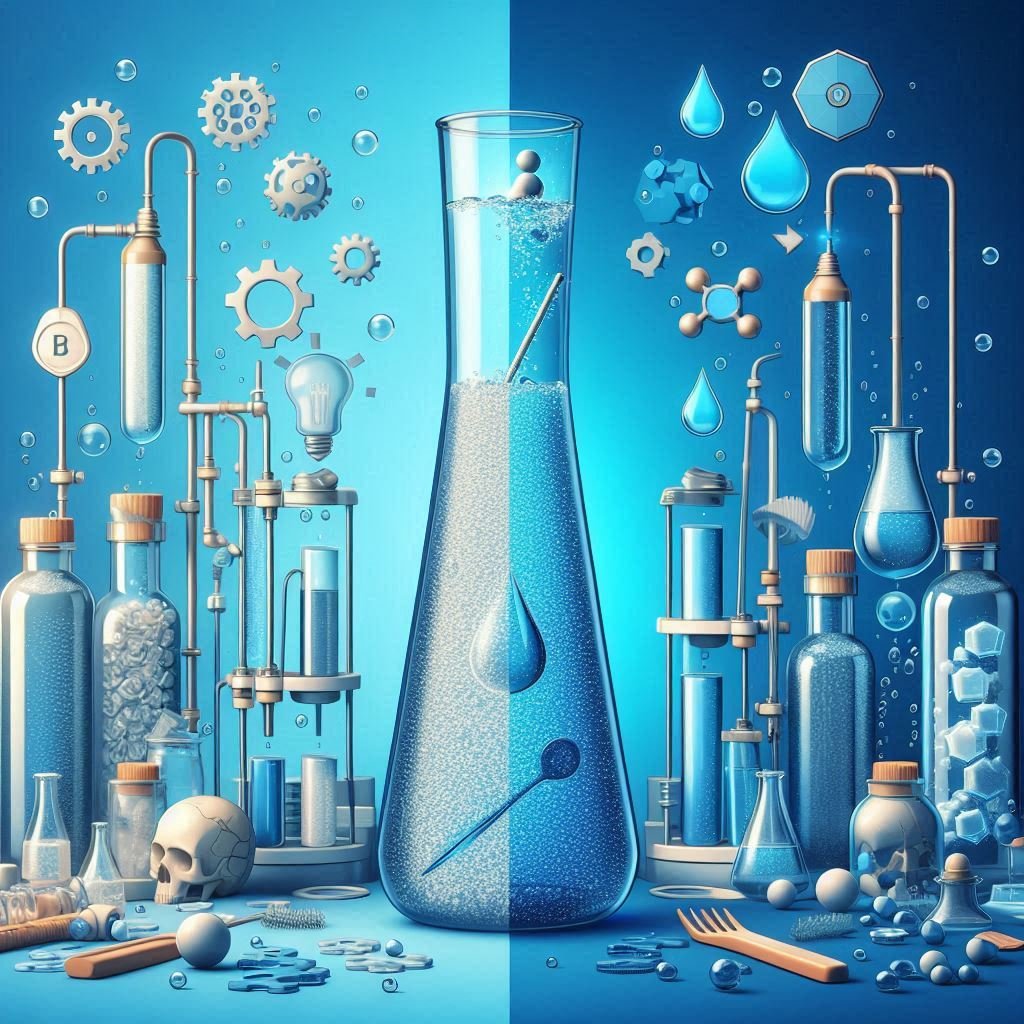Distilled Water And Deionised Water: Key Differences, Applications, And 5+FAQs
Distilled water is purified by boiling it into vapour and condensing it back into liquid to remove impurities, while Deionised water is purified through ion exchange to eliminate charged particles such as calcium, magnesium, and chloride.
When it comes to purified water, the two common types are distilled water and deionised water (DI water). Although both are used in laboratories, industries, and even homes, they are not the same. In this article, I will discuss what distilled water is, what deionised water is, and what are the differences between distilled and deionised water, along with FAQs.

What Is Distilled Water?
Distilled water is produced through distillation, a process that involves boiling water into vapour and then condensing it back into liquid form. This process removes impurities, minerals, salts, and most organic compounds.
Key Features:
- Free from dissolved solids and most contaminants.
- It may still contain trace gases like CO₂ unless further purified.
- Purity depends on the efficiency of the distillation setup.
What Is Deionised (DI) Water?
Deionised water, or DI water, is purified using an ion exchange process that removes ions (charged particles) like calcium, magnesium, iron, chloride, and sulfate. It doesn’t necessarily remove organic compounds, bacteria, or particulates.
Key Features:
- Ion-free, but not always particle- or microbe-free.
- Requires pre-filtration for organic or particulate removal.
- Faster and more economical than distillation in many settings.
Distilled And Deionised Water: Key Differences
| Feature | Distilled Water | Deionized Water |
|---|---|---|
| Production Method | Boiling and condensation | Ion exchange resins |
| Removes | Ions, minerals, organic compounds | Ions (both positive and negative) |
| Microbial Removal | Yes (through boiling) | No (requires additional filtration) |
| Cost | More energy-intensive | Generally cheaper and faster |
| Purity Level | High (especially with multiple distillations) | High ionic purity, but variable otherwise |
| Storage Sensitivity | Low (less reactive) | High (can leach ions from containers) |
Applications of Distilled Water
- Laboratories: Chemical experiments where high purity is essential.
- Medical equipment: Autoclaves and CPAP machines.
- Batteries and cooling systems: Prevents mineral buildup.
- Cosmetics and pharmaceuticals: Ingredient water.
- Food processing: Where mineral-free water is required.
Applications of Deionised Water
- Electronics manufacturing: Circuit board cleaning.
- Pharmaceuticals: Rinse water for sensitive processes.
- Laboratories: Preparation of reagents and solutions.
- Glass and optics cleaning: Leaves no mineral residue.
- Automotive and industrial uses: Coolant and wash systems.
Conclusion
While distilled and deionised water are both forms of purified water, they serve distinct purposes. Distilled water offers broad-spectrum purification, while deionised water excels in removing charged particles. The right choice depends on your needs—be it scientific, industrial, or domestic.
Related
FAQs
Is deionised water safe to drink?
Technically, yes – but it’s not recommended. DI water lacks essential minerals and can taste flat or bitter. In high volumes, it can also draw minerals from your body.
Which is purer: distilled or deionised water?
Both are very pure, but in different ways. Distilled water removes a wider range of contaminants, including microbes and organics. DI water is superior in ionic purity, but may still contain other impurities unless further treated.
Can I use distilled water instead of deionised water?
It depends on the application. For general lab use or cleaning, yes. But in sensitive electronics or ion-critical environments, DI water is often preferred.
How long does deionised water stay pure?
Not long if exposed to air or stored improperly. It quickly absorbs CO₂ and ions from containers or the environment. Use it fresh or in closed systems.
Can I make these types of water at home?
Distilled water can be made at home using a basic distiller. Deionised water requires special ion exchange resins, which are less practical for home use.
Are deionised water and distilled water the same?
No. Distilled water is purified by boiling it into vapour and condensing it back into liquid to remove impurities, while Deionised water is purified through ion exchange to eliminate charged particles such as calcium, magnesium, and chloride.
Further Reading


